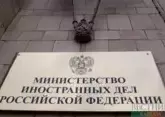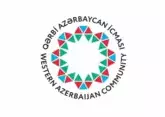The South Caucasus remains one of the most turbulent regions in the post-Soviet space due to the ongoing ethnic conflicts and the constant danger of their possible escalation. The threats and risks to the security of the South Caucasus are also increasing amid the worsening international situation in the whole space adjacent to the region of the Middle East. The idea of creating a structure that could ensure peace and security is becoming relevant in light of the political processes that are taking place in the South Caucasian republics.
The idea of uniting the South Caucasus is about a hundred years old. Six months after the socialist revolution, in April 1918, Azerbaijan, Armenia and Georgia split away from the Russian empire and announced the creation of a South Caucasian federal republic that existed for only a month - until May 26th of the same year. As such, the republic was far from the principles of a federal structure, recalling a confederative state formation. The idea of an integration project was welcomed by the advanced South Caucasian intelligentsia, but there was no experience of the confederative relations among the three countries; therefore, the unique opportunity to create a fundamentally new South Caucasian association was missed.
Today, the idea of creating a common political space is relevant once again as it is profitable from an economic point of view. Azerbaijan has obvious advantages in hydrocarbons, banking and finance are better developed in Georgia, there is access to the sea, Armenia has diaspora’s strong support. Georgia participates in three projects for the transit of Azerbaijani oil and gas, the rail transportation between Azerbaijan and Turkey is carried out through its territory. Major international players may also be interested in implementing the idea of a confederation. First of all, it concerns the economic interests of the European Union and the United States.
The transport and communication component of Georgia and Azerbaijan, which links Central Asia and Europe, remains the dominant of Washington’s policy in the South Caucasus. Armenia can ensure the nuclear energy security of the region, especially since the development of modern nuclear energy has become a priority for the republic.
The confederation may initially include two, and then three independent states, which, after entering the confederative relations, will remain sovereign. Combining the economic potentials of Azerbaijan, Armenia and Georgia, as well as the possibility of free movement of labor resources, can enhance the ability of the entire South Caucasus to resist economic pressure from outside, contributing to the independent solution of existing ethnic problems. If the conflict issues between countries are settled, the confederation of the three republics can become a new geopolitical center of power and drastically change the situation in the region.
The confederation project can solve many controversial issues: it will be easier to return internally displaced persons to their homes thereby reducing the economic imbalance. The commonwealth on a confederal basis will help to resolve national issues. A return of autonomy to the disputed subjects is impossible due to the fact that in this case Baku, Tbilisi and Yerevan are in danger of planting another ‘time bomb’. New comprehensive agreements would allow introducing a supranational principle of creating an integrated education in the territory of the South Caucasus at the legislative level.
Today, for example, the conflict in Nagorno-Karabakh extends far beyond the occupied territories, adversely affecting the relations between the Armenian and Azerbaijani communities of Georgia. Therefore, an ‘international triangle’ can be created in Kvemo Kartli, Javakheti and Karabakh, where the Georgian, Armenian and Azerbaijani communities will be able to find cultural points of contact.
The final agreement should stipulate that territorial and other claims are archived once and for all, taking into account the principles of the territorial integrity of Azerbaijan, Armenia and Georgia and the inadmissibility of unilateral alteration of borders by force. Formed supranational bodies will be able to have proportional representation from among the parliamentarians of all three republics and their powers may be suspended at any time if any draft laws contradict the interests of the confederation members.










